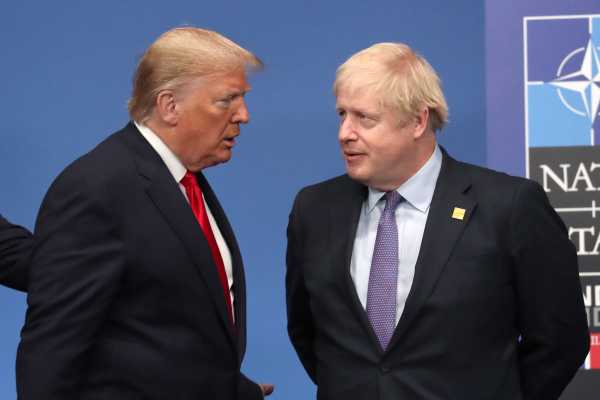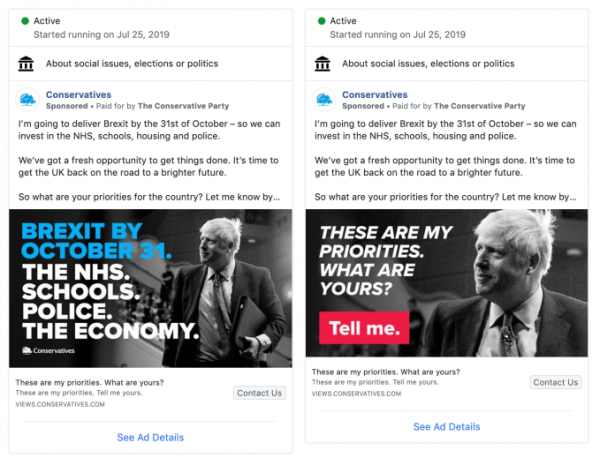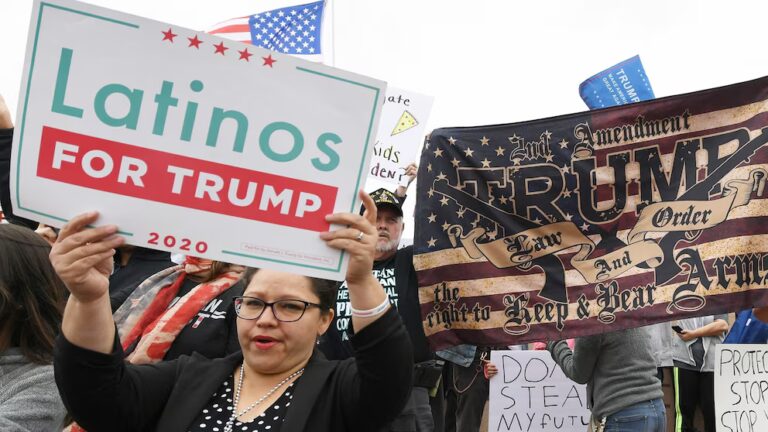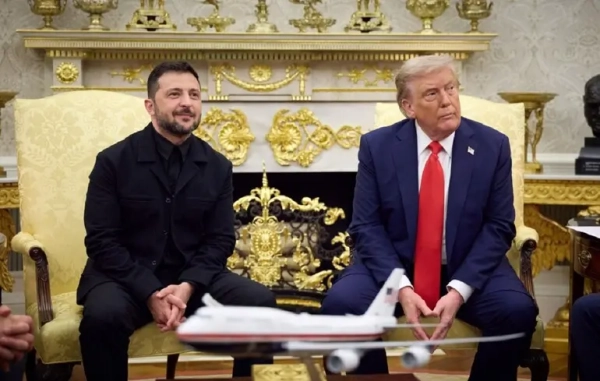
Ever since the results of the UK election Thursday, when Boris Johnson and the Conservative Party defeated the Labour Party by a landslide, the internet’s been ablaze with takes offering lessons for American Democrats.
But a more relevant set of lessons may be for the GOP.
Johnson, after all, capitalized on his adversaries’ weaknesses and played Brexit as a culture war issue for all it was worth. But that wasn’t all he did. To woo culturally conservative traditional Labour voters and encourage urban moderates to reject Labour leader Jeremy Corbyn, Johnson promised a series of measures designed to make British people’s lives better in concrete ways.
This was part of Trump’s formula in 2016, and it worked. But he’s largely eschewed it since taking office. For the sake of both himself and the country, he should consider reversing course. There’s no better way for an incumbent to win than to try to do things that are actually useful.
Boris Johnson’s pivot to the center
In his election manifesto, Boris Johnson pledged to hire 20,000 new police officers in a partial reversal of cuts that Conservatives made earlier in the post-financial crash austerity years. He promised an infusion of new funding to the National Health Service. He committed to significant cuts in greenhouse gas pollution.
Continuing work begun under earlier Conservative governments, he brought in Arindrajit Dube — a leading scholarly proponent of minimum wage increases clearly associated with the left in America — to consult on a plan to raise Britain’s minimum wage. These gestures of moderation on economic policy earned equal billing with Brexit in many of the Conservatives’ ads, a clear effort to appeal to working class voters on the culture war while also reassuring them about Tory economic policy.

Many progressives in the UK feel Johnson’s promises aren’t credible. Certainly the experience of Trump in the United States has been that conservative populists’ talk of a moderate agenda on economics and the environment is often just talk. But Johnson’s ideas do sound good, and campaigning on ideas that sound good is pretty smart. Trump’s been in office for a while now and should consider doing some of the nice-sounding things he said he would do.
Trump’s litany of broken promises
The Trump administration sometimes portrays itself as obsessed with delivering on promises made during the campaign, even adopting “promises made, promises kept” as a slogan.
But his approach to governance has very much been the opposite. Candidate Trump promised “insurance for everybody,” but the Trump administration backed a series of Affordable Care Act repeal plans that would have cost millions of people their coverage. His administration is pushing a lawsuit that seeks to accomplish through the courts what failed in Congress. And his Department of Health and Human Services is pushing Medicaid waivers that threaten insurance for millions.
Even while voicing skepticism of climate change policy, Trump repeatedly made clear and explicit promises to deliver clean air. That’s a good idea, because scientific information keeps coming in to indicate that air pollution is even more harmful than has been traditionally realized. But air pollution is rising in unprecedented ways, in part because of regulatory choices his administration has already made, and his team is moving to allow even more air pollution.
Trump promised not to cut taxes for the rich, but then he delivered a massive tax cut for the rich and followed up its unpopularity by repeatedly touting a hypothetical future middle class tax cut.
All this lying suggests Trump has decent instincts about what people want to hear. But his approval ratings are currently underwater. A good approach to turning that around would be to take his instincts about what people want to hear and actually deliver on them.
Good ideas can be good politics
House Democrats’ decision to reach a compromise with Trump on the USMCA trade deal suggests what a better strategy might look like.
This was widely reported on as a “victory for Trump.” The essence of the victory, however, was that Trump advanced a trade agenda that had a pretty good idea at its core — protecting American auto industry jobs at the cost of allowing cars to become slightly more expensive. Over the course of negotiating with Democrats, they got him to drop one really bad idea from the package — raising prescription drug prices for Mexican and Canadian consumers — so in the end, Democrats backed the bill because it was basically a good idea.
Trump could easily score more victories of this sort if he wanted to. There is a ton of middle ground between the current federal minimum wage of $7.25 an hour and Democrats’ demand for $15 an hour. Trump could almost certainly strike a bargain with moderate Democrats to raise it to somewhere in between, score another win, and do something popular that helps millions of people.
He could do what he said he was going to do and vigorously pursue clean air enforcement. He could drop the current Affordable Care Act lawsuit and start bargaining in good faith with Democrats over ideas to improve the existing system — further driving a wedge in the Democratic Party and its fight over Medicare-for-all while, again, helping millions of people with real problems in their lives.
The idea of trying to win reelection by doing a good job of running the country rather enlisting his personal lawyer Rudy Giuliani to conduct legally fraught opposition research internationally may seem profoundly out of character for Trump, and on some level it is.
But consider that pretty much everyone agrees that the steady continuation of the labor market recovery Trump inherited from Obama is the key to his political viability. That didn’t happen by accident. When Trump was running, it was widely forecast that if he won he would launch incredibly destructive trade wars that would plunge the economy into recession. But while Trump has certainly dabbled in trade wars, he’s consciously avoided doing anything too destructive. He’s pushed the Federal Reserve to keep interest rates low, and he’s simultaneously cut taxes while increasing both military and domestic spending — delivering useful stimulus to the economy.
You don’t need to like Trump to see that on this topic he has made, broadly speaking, reasonable choices. And you don’t need to hate Trump to see that if he’d blundered on economic management instead, he’d be toast today.
A smart White House would apply that lesson more broadly. Take the popular, helpful things Trump promised to do and actually do them — wed his culture war politics to a record of accomplishment and ride it to victory.
Sourse: vox.com






